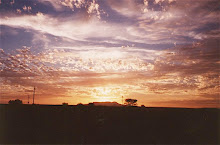In the past few years some middle-class blacks have moved across the tracks, living alongside middle-class white families. The wealthy white families, however, live on the other side of the creek. There are only two bridges in the town and these bridges (and the creek itself) set apart the wealthier white community from the rest of the town.
But the centerpiece of the Delta is the Mississippi River. Really, it is the centerpiece of the United States of America. The Great River created, among other things, rock and roll, American Literature, and, of course, the Civil War.
Millions of Africans were brought over to pick the cotton (with millions more dying on the way), bringing customs, music, and culture from West Africa. Jazz, the blues, and juke joints all have their roots in West Africa. The word “juke” means “wicked” in many West African dialects. Elvis Presley, as a young, impressionable man would drive over to the Delta from his hometown of Tupelo, MS and take in the music at these juke joints. This was the spark of rock and roll.
Growing up on the river Mark Twain based many of his stories around its waters. The river is the central narrative of The Adventures of Huckleberry Finn, the novel that, according to Earnest Hemingway, “all American literature came from.”
Slavery is the lasting impact though. Slavery, the Civil War, and our tortured history of race in this country all originated with the river. Walk through Hollandale and look at the faces. You are looking at the great grandchildren of slaves and slave owners.
“Emory R. Simmons, a former slave, started the first black school in Hollandale in 1890,” said Mr. Howard Sanders, the retired Superintendent of the Hollandale School District.
The cotton fields in the Delta hold our history in the soil. Rock and roll, American literature, and the Civil War. It all started right here...
Subscribe to:
Post Comments (Atom)


No comments:
Post a Comment